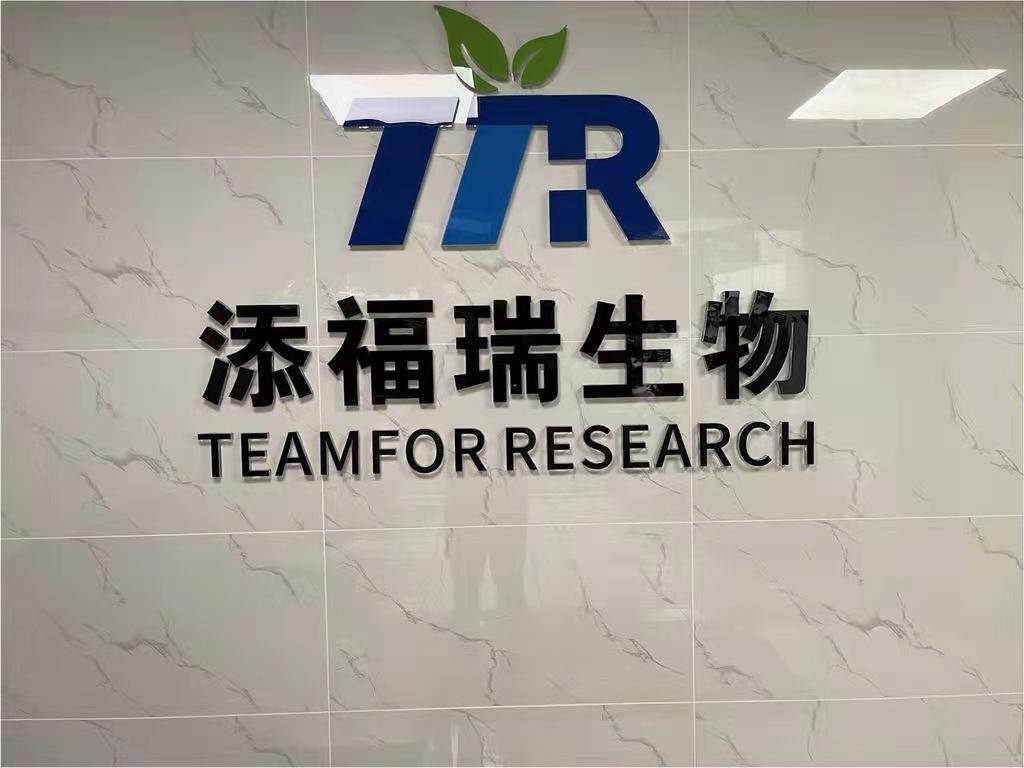Introduction
Artificial Intelligence (AI) technology has swiftly made its way to the healthcare industry - including therapeutic target discovery. It is transforming how research scientists approach therapeutic exploration during drug discovery. This gradual integration of AI into drug discovery has the potential to revolutionize the entire drug discovery process, equipping pharmaceutical researchers with better efficiency, accuracy, and speed.
In this article, we will explore the growing relationship between AI and medicine, reviewing the disruptive changes AI brings to therapeutic target discovery and its implications for the future of healthcare. Starting from the evolving role of AI as a core component in reshaping medical research, we will explore the potential of AI in forging new paths in medicine. We will then take a deep dive into the evolving dynamics of medical technology, the milestones AI has achieved already, and the prospects of AI in therapeutic target exploration.
So without further ado, let's get started!
The Evolution of AI in Medicine
From being a mere theoretical concept confined to academic research only, AI has undergone a massive revolution. So much so that it has paved its path to therapeutic drug exploration through tangible application.
It all started with early experiments in machine learning and data analysis, which gradually moved towards more sophisticated AI models. This led to the development of algorithms that were capable of diagnosing diseases with precision matching that of human experts and the creation of AI-driven tools for personalized treatment plans.
These breakthroughs transformed AI from a concept of the future into a vital part of today's healthcare. It won't be long before AI becomes a fundamental component of drug discovery and therapeutic drug exploration.
Understanding AI-Powered Therapeutic Target Exploration
In the drug development process, Therapeutic Target Exploration is a complex phase in which potential biological targets like proteins or genes are identified and evaluated for their role in disease processes. Through therapeutic target exploration, scientists can find a target that can be modulated or inhibited by a drug to develop effective treatments. AI has revolutionized therapeutic target exploration by providing an efficient approach to target identification and validation.
Here's how AI does this:
Traditional target exploration methods rely on trial and error but are limited by the human capacity to analyze vast data. This is where AI comes in. AI algorithms can rapidly sift through massive biological datasets to predict the effectiveness of targeting certain molecules, reducing the time and cost associated with traditional methods.
Traditional Methods vs. AI-Driven Approaches
The comparative analysis between traditional methods and AI-driven approaches in therapeutic target exploration reveals stark differences.
Traditional Methods
Used in drug discovery for decades, Traditional methods use a linear approach that starts from a hypothesis and tests it through various experiments. The entire process is slow and labor-intensive, often taking up years of research.
AI-Powered Drug Discovery
AI-driven approaches are more dynamic and iterative. By analyzing complex biological networks, AI draws insights from previous research and also incorporates real-world data - accelerating the whole process and increasing the accuracy and likelihood of finding viable therapeutic targets.
Deep Dive into AI Technologies in Medicine
Several AI technologies are being used in medicine and drug discovery. These include Machine Learning (ML), Deep Learning (DL), Natural Language Processing (NLP), Generative Models, and more. Together, these AI technologies work to help scientists in identifying and analyzing therapeutic drug targets.
Machine Learning (ML)
As the name implies, Machine Learning technology enables "machines" (computer systems) to "learn" and improve from experience without being explicitly programmed.
Thus, ML focuses on developing algorithms that can analyze and interpret data, make decisions, and predict outcomes.
It's the "self-learning" ability of ML that makes it a unique AI technology. In drug discovery, ML algorithms analyze large datasets and make predictions based on the available data. Apart from predicting biological targets of existing drugs, ML can also identify novel therapeutic targets for any disease.
Deep Learning (DL)
Deep Learning (DL) is an innovative AI technology based on artificial neural networks that simulate the human brain's neural networks in processing complex information.
Thus, Deep Learning AI technologies can analyze intricate biological data with wide applications in disease research, at a much deeper level than ML.
In a 2022 study on Amyotrophic Lateral Sclerosis (ALS), scientists combined deep learning models with bioinformatics to identify disease-specific potential therapeutic targets. The integration of DL technology enabled them to discover 17 potential targets for ALS treatment and shortened the entire drug discovery process from years to months.
Natural Language Processing (NLP)
While machine learning and deep learning use algorithms to learn from data, Natural Language Processing or NLP specifically works on understanding and processing human language. In healthcare, NLP helps in processing unstructured data and turning it into actionable insights.
Thus, NLP algorithms extract information from text-based data like patient records, clinical notes, and medical literature and analyze it further to make data-driven decisions, such as the identification of potential drug targets in drug development.
Generative Models
AI-powered Generative Models are opening new frontiers in drug design and medical imaging. These models can generate new data samples, such as molecular structures to discover novel drugs. Generative AI models can simulate how different chemical compounds might interact with biological targets, reducing the need for physical trials in the early stages and speeding up the drug discovery process.
In medical imaging, generative models are used to create synthetic but realistic images to train AI systems to analyze real patient data. Since these models can simulate patient responses to different treatments, generative models can also help in creating custom treatment plans based on individual patient needs.
Challenges and Setbacks
While AI is accelerating the drug discovery process and improving its precision and efficacy, there are several technical challenges associated with its implementation, specifically with its integration into existing healthcare infrastructure.
Let's have a look at the three most prominent limitations associated with AI integration in drug discovery:
Data Integration and Quality Issues
To analyze data, AI systems require immense amounts of high-quality and consistent data. Since data in drug development comes from multiple sources and in different formats, harmonizing it for "effective" AI use becomes a major challenge.
Compliance Issues
The healthcare industry stands as the most regulated industry in the world. The strict regulations set by regulatory bodies are key players in ensuring patient safety and drug efficacy. Because AI systems are constantly evolving, it is difficult to ensure their "ongoing compliance" with regulatory compliance standards and protocols.
Interoperability Issues with Existing Systems
The healthcare industry uses a diverse range of software and hardware systems, with some being outdated while others using different standards. Integrating new AI tools into this diverse landscape requires them to be compatible with all existing systems, which is why interoperability makes up a major technical and logistical hurdle.
Addressing the Skills Gap
The intersection of AI and healthcare demands a unique skill set spanning across both domains. It's the multidisciplinary expertise in both medicine and AI that requires targeted training for healthcare professionals. Medical curricula are increasingly incorporating AI and data science components to equip healthcare professionals with the necessary skills needed to leverage AI tools to their full potential.
Apart from foundational AI and data science knowledge, continuous learning and skills development are equally important since AI is rapidly evolving. Fostering a culture of lifelong learning and providing resources for ongoing education can help healthcare professionals stay abreast of the latest advancements, ensuring that the potential of AI in medicine is fully realized.
Future Trends and Predictions
What we are witnessing now is only the beginning. With the advent of cutting-edge technologies like quantum computing, we're gearing up for an era where AI's ability to crunch numbers and model complex data is supercharged, enabling even more sophisticated data analysis and modeling.
In therapeutic target exploration, AI will continue to make the process more efficient, accurate, and personalized. AI's analytical prowess and human expertise will continue to provide a "synergistic effect" in improving drug discovery and patient care, and opening new avenues in preventive medicine and personalized healthcare strategies.
Success Stories
We've talked about the "potential" of AI in disrupting the conventional drug discovery process, but the change has already begun.
That's right.
We're talking about successful AI applications in therapeutic target exploration. AI-powered generative models have already produced some successful results.
Let's look at a few:
Insilico Medicine, an AI-powered biotech company uses AI systems to connect biology, chemistry, and clinical trials analysis. The company has developed AI platforms that use deep generative models, reinforcement learning, and other modern machine learning techniques for novel target discovery and the generation of novel molecular structures with desired properties.
In their recent opinion essay published in The Cell Press Journal, scientists from Insilico Medicine have discussed 10 biotech companies that are currently using AI technology in drug discovery.
But here's the interesting part:
The drugs being developed in these companies have already surpassed Phase I and Phase II trials. As discussed earlier in this article, one of those drugs is a lead drug being developed for idiopathic pulmonary fibrosis is a 100% AI-powered drug. From target exploration to its design, it is a complete generative AI drug.
Alex Zhavoronkov, founder and CEO of Insilico Medicine, describes this shift succinctly: "AI is a powerful tool in the target discovery and drug development process and its role in drug development continues to expand. We envision a future where AI plays an indispensable role in accelerating the development of safe and effective therapeutics."
The Global Landscape
The adoption of AI in drug discovery exhibits significant geographic variations, reflecting differing economic, technological, and regulatory environments. In regions like North America and Europe, where there is robust funding and a strong tech infrastructure, AI adoption is more advanced. In developing regions, challenges like limited resources and technological gaps slow AI integration.
This global landscape is also characterized by a mix of collaboration and competition. Countries and companies collaborate through shared research, international conferences, and cross-border partnerships, fostering global advancements in AI healthcare. However, there's also competition, in securing intellectual property rights and leading in innovation.
This is where the role of International regulations comes in:
International regulatory bodies ensure that AI applications in healthcare are safe, effective, and ethically sound, regardless of where they are developed or used. These standards also facilitate international collaboration by providing a common framework for development and assessment. However, the difference in regulatory standards across different countries can create challenges in the global harmonization of AI applications in healthcare.
Investment and Funding in AI Healthcare Ventures
AI systems development requires massive funding. With the rise of AI healthcare ventures, funding sources play a crucial role in driving innovation, enabling startups and companies to develop and upgrade AI applications.
There are three main funding sources in AI healthcare ventures sources namely venture capital firms, government grants, and strategic investments from healthcare corporations.
An analysis of these funding sources reveals their significant impact on the pace of AI healthcare innovation. Venture capital firms favor ventures with high potential for disruption and profitability, often leading to rapid advancements in cutting-edge technologies. On the flip side, Government funding focuses mainly on broader public health impacts, supporting research in areas like disease prediction and management.
In the near future, investment trends suggest a continued rise in investment in emerging areas like personalized medicine and predictive analytics, all of which lead to a wider adoption of AI in healthcare.
Ethical and Societal Implications
We know that AI integration in drug discovery has the potential to improve patient outcomes, reduce healthcare costs, and make healthcare more accessible. However, the technology also comes with a host of ethical dilemmas including patient privacy, data security, and the potential for AI algorithms to perpetuate biases.
Ensuring ethical use of AI in healthcare therefore requires strict adherence to data privacy laws, transparent algorithmic processes, and continuous monitoring for biased outcomes. Maintaining the right "balance" between technological advancement and ethical responsibility involves various stakeholders, including patients, healthcare providers, ethicists, and policymakers.
It also requires the establishment of ethical guidelines and standards for AI applications in medicine, ensuring that technological advancements align with societal values and benefit humanity as a whole.
Conclusion
AI's role in therapeutic target exploration and drug development has shifted from a futuristic vision to a present-day reality, marking a significant leap in how we approach healthcare challenges. The fusion of AI with traditional drug discovery processes isn't just about enhancing efficiency and precision, it's about making it more personalized and accessible.
Yet, as with any great advancement, this disruption comes with its own set of challenges. The integration of AI into the highly regulated, complex world of drug discovery demands technical finesse and steadfast commitment to ethical practices and continuous learning. This is where the collaboration among healthcare professionals, technologists, and policymakers is critical to ensure that AI's integration aligns with the highest standards of patient care and ethical responsibility.
Looking ahead, the potential of AI in healthcare is boundless. We are already witnessing its impact in accelerating drug discovery, and its future role in predictive medicine and personalized treatment strategies is promising. Thinking of AI as a collaborator that enhances human expertise, not as a competitor is where "innovation will blend compassion", and each advancement will bring us closer to a future of more personalized, empathetic healthcare.
About the Author
Saher Haider
Saher Binte Haider is a pharmacy graduate from Dow University of Health Sciences. She started her career as a Quality Management professional in the pharmaceutical industry where she developed a keen interest in good documentation practices, SOP creation, and content writing. She has 7+ years of experience in healthcare & life sciences content writing. Her key areas of expertise are healthcare, pharmaceuticals, health tech, and AI in healthcare.





 ALL
ALL Pharma in China
Pharma in China Pharma Experts
Pharma Experts Market News
Market News Products Guide
Products Guide Brand Story
Brand Story
































 Pharma Sources Insight January 2025
Pharma Sources Insight January 2025








